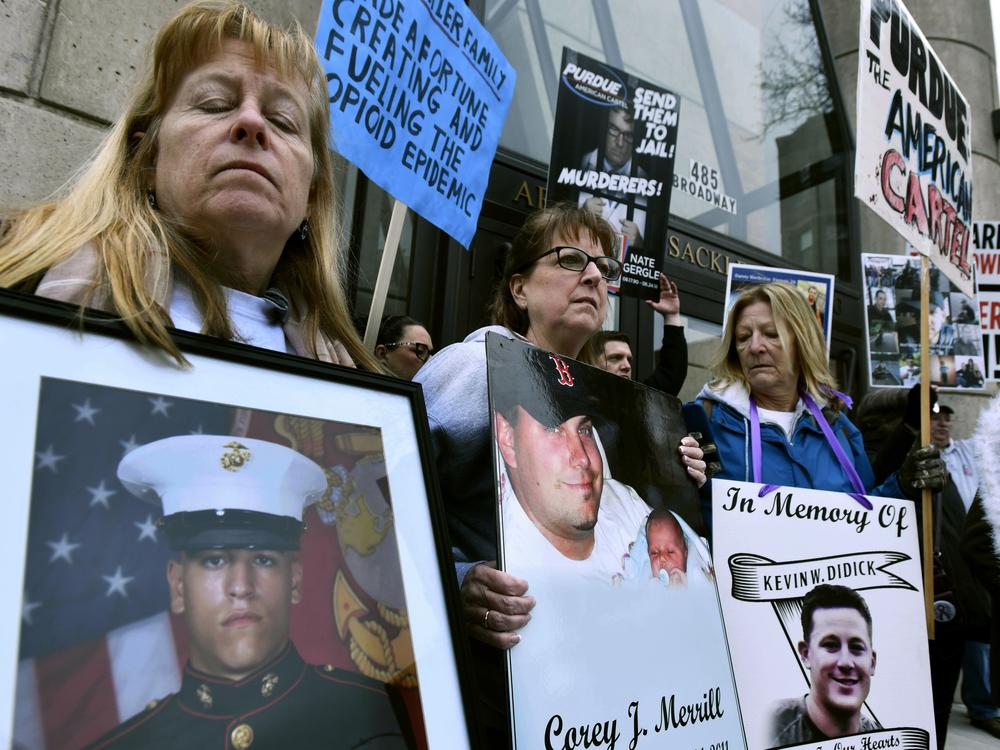Section Branding
Header Content
Supreme Court rejects controversial Purdue Pharma bankruptcy deal
Primary Content
The U.S. Supreme Court on Thursday invalidated a controversial bankruptcy deal involving Purdue Pharma, maker of the highly addictive painkiller Oxycontin, and members of the Sackler family who owned the scandal-plagued drug firm.
By a vote of 5-4, the justices threw out the bankruptcy settlement, which has been valued at between $6 billion and $10 billion.
Writing for the court majority, Justice Neil Gorsuch said U.S. bankruptcy law doesn't afford bankruptcy courts the kind of power needed to block lawsuits against parties who haven't filed for bankruptcy. "The bankruptcy code does not authorize a release and injunction that, as part of a plan of reorganization under Chapter 11, effectively seek to discharge claims against a non-debtor without the consent of affected claimants," he wrote.
Gorsuch added that if Congress intended to grant this level of power to bankruptcy courts, it might have done so.
Writing for the dissenters, Justice Brett Kavanugh said the ruling disrupts a deal that would have funneled money to communities and victims of the opioid crisis. "Today's decision is wrong on the law and devastating for more than 100,000 opioid victims and their families," Kavanaugh wrote.
The bankruptcy deal would have provided roughly $8 billion to state and local governments for dealing with the consequences of opioid addiction; it also would have provided individual compensation to victims.
Most of the settlement would have been funded by members of the Sackler family who owned and ran Purdue Pharma, and agreed to pay $6 billion into the compensation pot.
In exchange, the Sacklers would have been shielded from personal liability even though six Sackler family members served on the company’s the board — including Chairman Richard Sackler, who closely directed the firm’s aggressive and deceptive marketing strategy for Oxycontin as a painkiller that was not addictive.
Ultimately, 95% of the victims who sued Purdue Pharma agreed to the bankruptcy settlement. But the remaining 5% objected, contending the bankruptcy court exceeded its authority in allowing the Sacklers to hold on to half their wealth and escape further liability. The deal was also opposed by the U.S. Justice Department's bankruptcy watchdog agency.
But on Thursday the Supreme Court tossed out the deal.
Experts say the decision will have far-reaching implications for an overdose crisis that still kills more than 100,000 people in the U.S. every year.
The court's ruling is expected to echo through the corporate world, where a growing number of wealthy companies and individuals have sought to use federal bankruptcy law to limit their liability when accused of wrongdoing.

